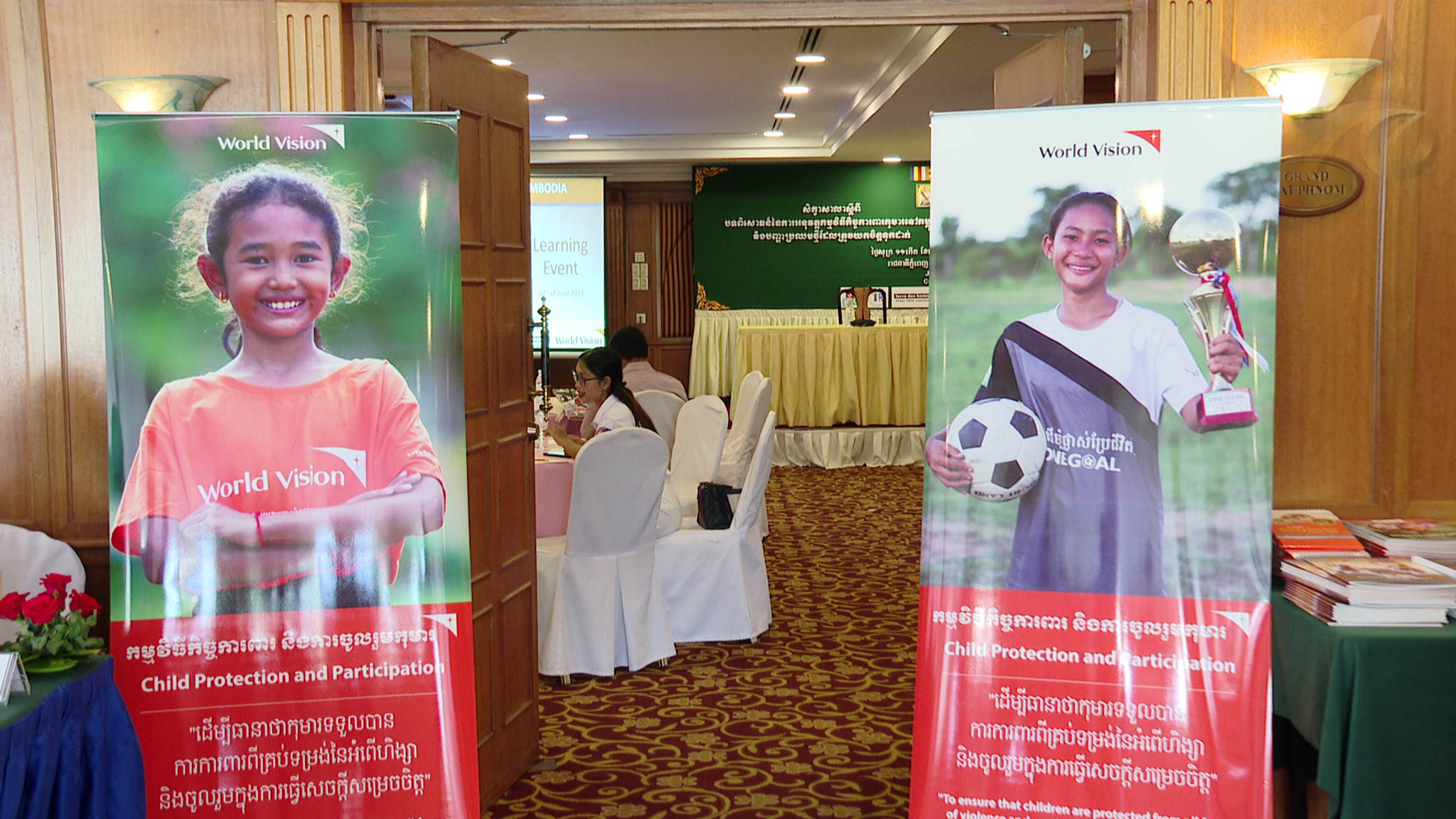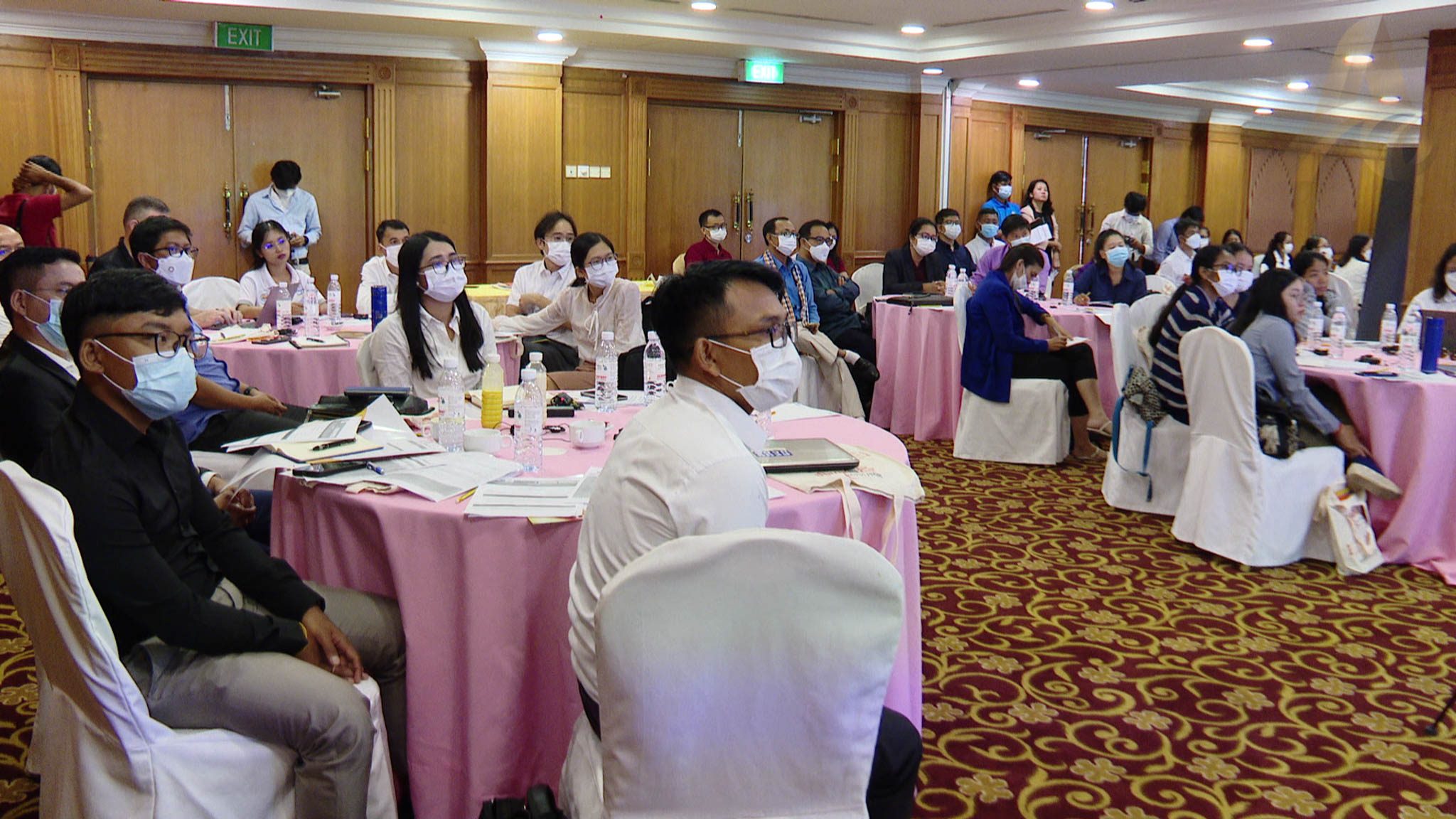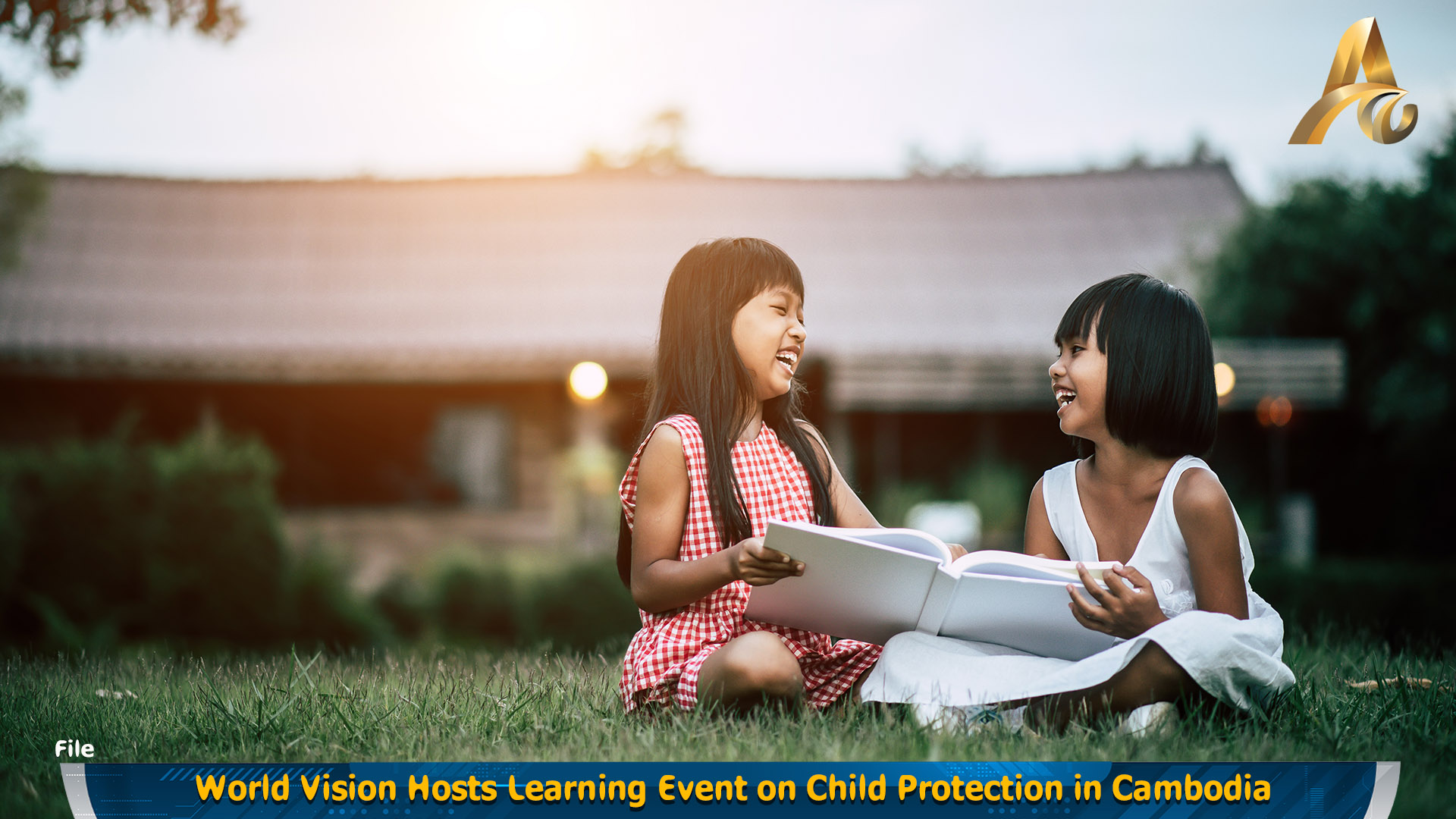PHNOM PENH: World Vision International (WVI) hosted a Learning Event on Child Protection in Cambodia at Sunway Hotel in June 2022. Along with Save the Children, Terre des Hommes, 3PC (MOSVY, UNICEF, and FI), and Child Rights Coalition Cambodia (CRC), World Vision shared reports on research conducted from 2018 to 2021 on child protection against violence and exploitation.
After introductions from the Director of Operations and Chief of Party for Social Accountability and the Deputy Director of the Child Welfare Department from the Ministry of Social Affairs, Veterans and Youth Rehabilitation, the Learning Event began its presentations with Veasna Chhay, the Technical Program Lead on Child Protection and Participation from WVI Cambodia, on caregiver stress and how Covid-19 affected violence against children.
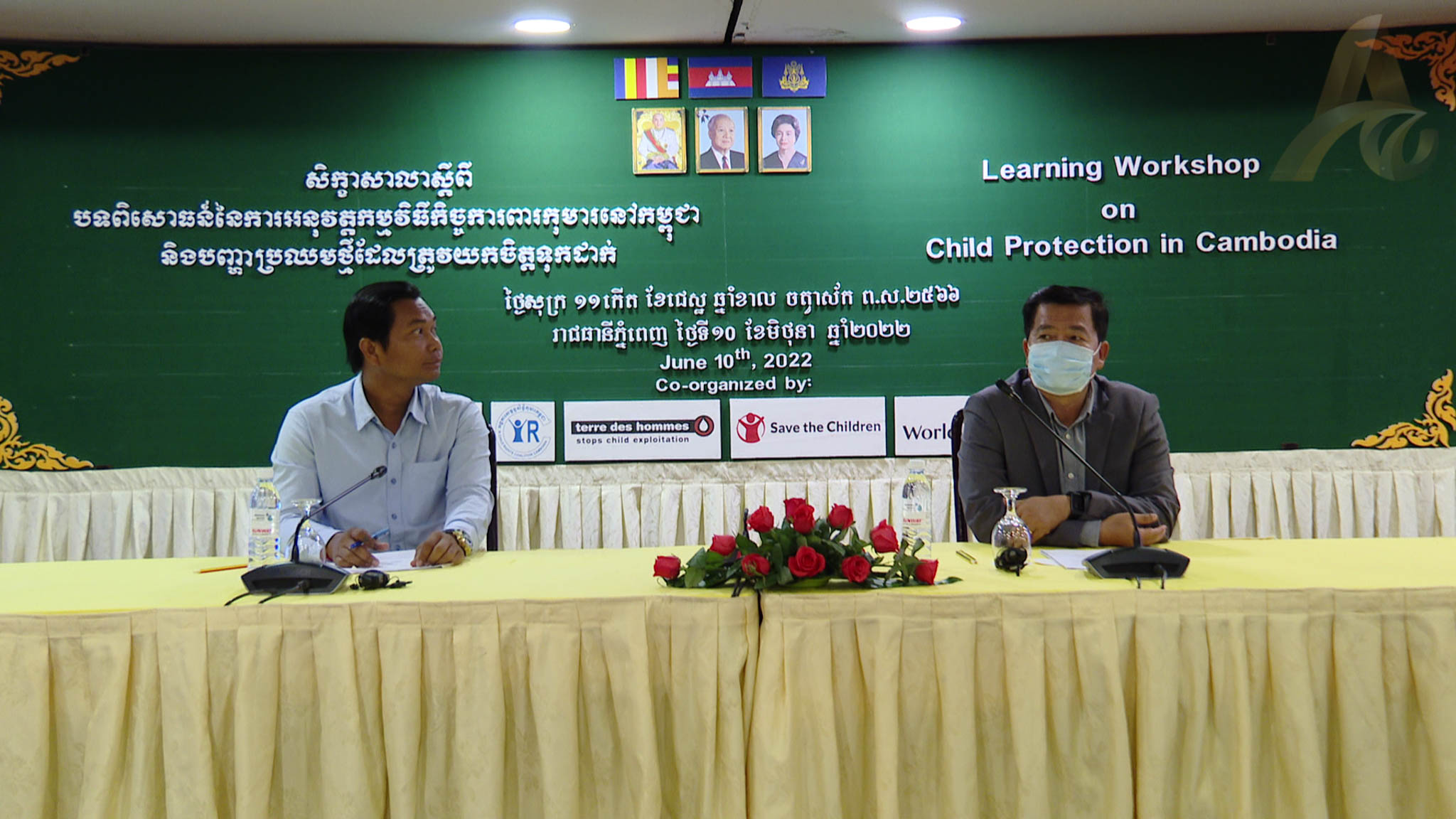
WVI’s Child Protection Program spent over $13.7 million from 2018-2021 in 10 provinces and cities in Cambodia. The program aimed to empower children, change attitudes of parents and guardians and promote positive disciplines with Celebrating Families (CF), strengthen support systems to protect and respond to violence against children, and improve laws and accountability.
Overall findings show a reduction in the use of corporal and humiliating punishments for children. However, there were concerns over an increase in emotional abuse in the context of Covid-19, especially from mothers who are traditionally caregivers with many stressful household responsibilities. Thus, changes in gender norms are also important in moving towards positive discipline.
Veasna Chhay said, “On physical and emotional violence, we have seen research from UNICEF and MoSVY in 2013 that there was more physical violence than emotional violence. Presently, we see research in the context of Covid-19, we find that there is concern over more emotional violence cases than cases of physical violence. With the children’s participation, as I mentioned during the Q&A session, the children mentioned that the older they get, the less physical violence they received from their parents, but they received emotional violence instead because the use of physical violence can affect reputation and others… We find that mothers are most likely to use violence, more than fathers.”
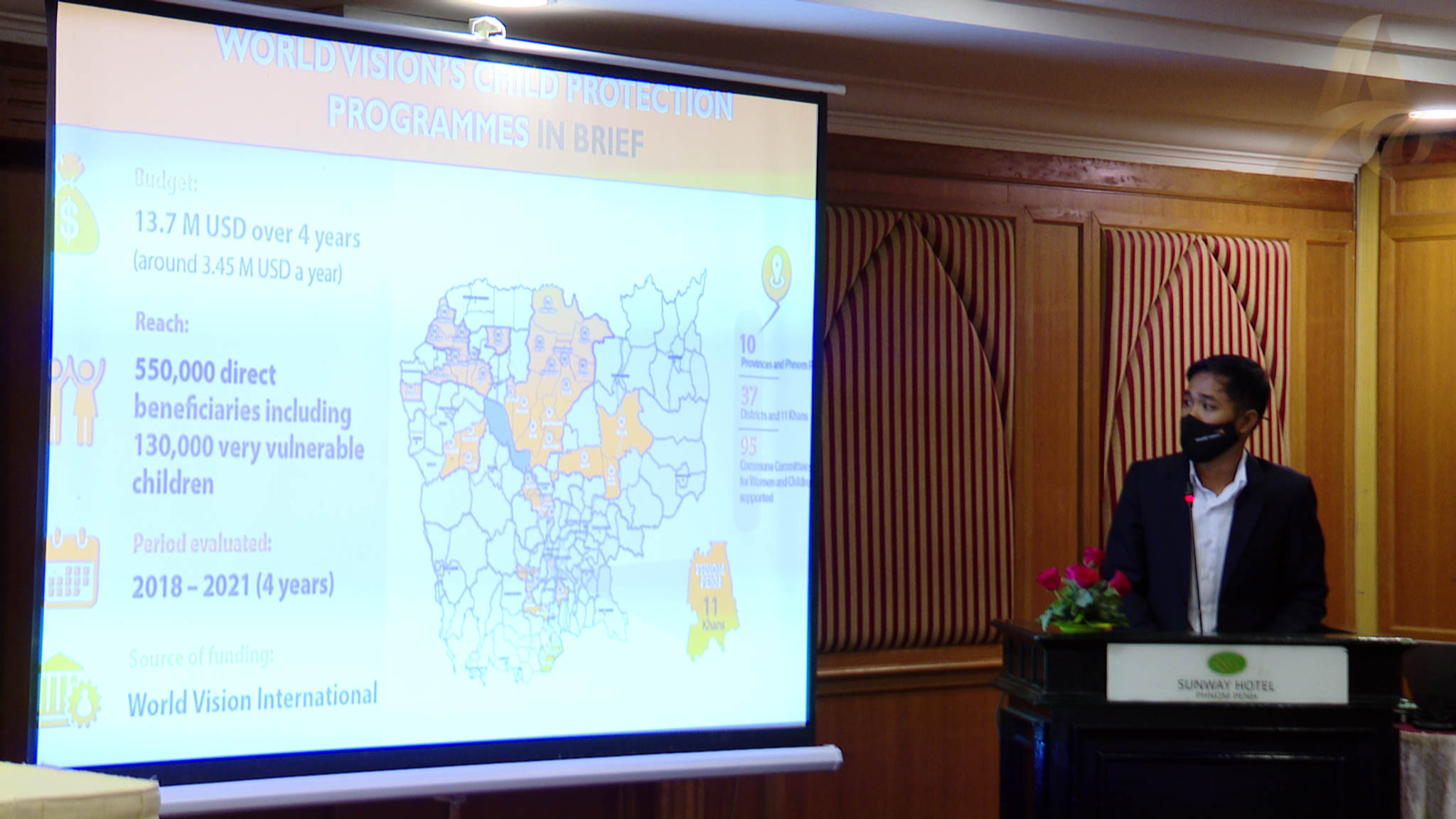
Monysakada Phal, the Senior Research Specialist at Save the Children, presented results from the implementation of the Parenting without Violence using Protecting Children through System Strengthening and Evidence (PraCTiSE) Project.
The project lasted from 2017 to 2021 in Peamro District, Prey Veng Province. Caregivers were surveyed with yes-or-no questions regarding the incidence of physical and emotional violence. The research showed that positive parenting did reduce violence against children, however, further enhanced intervention was needed for female caregivers and those living in poverty in order to reduce violence. He said that poverty was not the direct cause of violence but because those living in poverty spend more time with the children at home, there is more opportunity for violence.
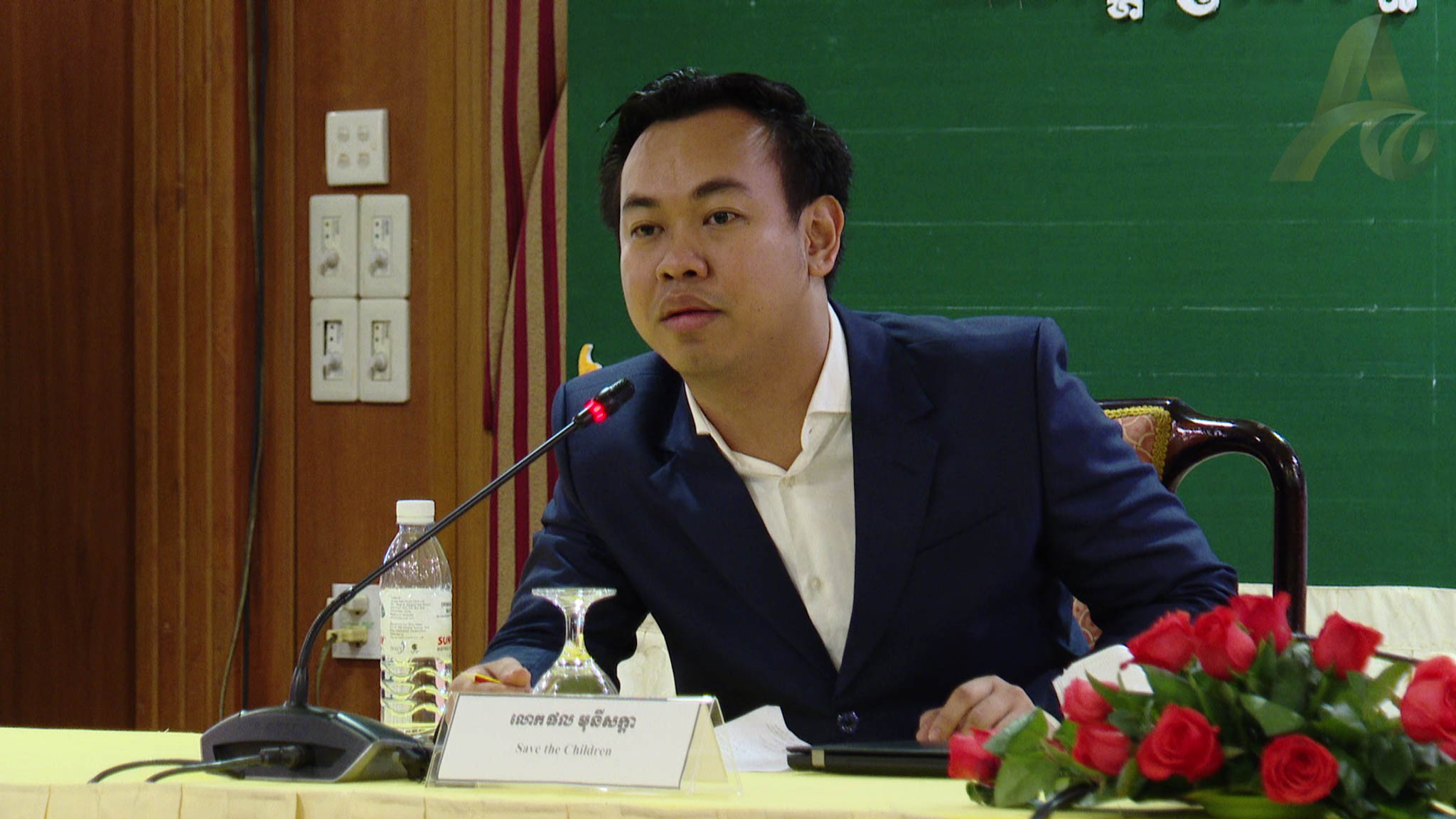
Yan Lay, the Executive Director of CRC - Cambodia, and Zoe de Melo, the Cambodia Project Manager of Terre des Hommes Netherlands, provided their findings next. Yan Lay said that the National Policy on Child Protection System 2019-2029 has been developed to integrate existing mechanisms and systematically continues to provide consistent services for children and families. However, it is difficult to protect children from online exploitation because the law criminalizes “Child Pornography,” and does not have explicit provisions that criminalize accessing or downloading child sexual abuse images. Additionally, there is no official data collected on the extent of Online Child Sexual Exploitation in Cambodia.
Zoe de Melo presented findings from three different projects: Prevention and Response to Online Child Sexual Exploitation (OCSE) in Cambodia 2018-2020 - Advocacy, Working Actively Together for Children - WATCH 2018-2020 Child-led community mobilization, and Sweetie 24/7 in 2021: First Step to Establishing a Practitioners’ Network on OCSE. Terre des Hommes worked with APLE, Auscam Freedom Project, Hope for Justice, Hagar, and This Life Cambodia to strengthen protection and reporting among parents and children, provide psychosocial support to child victims and identify and mitigate risks related to the use of technology.
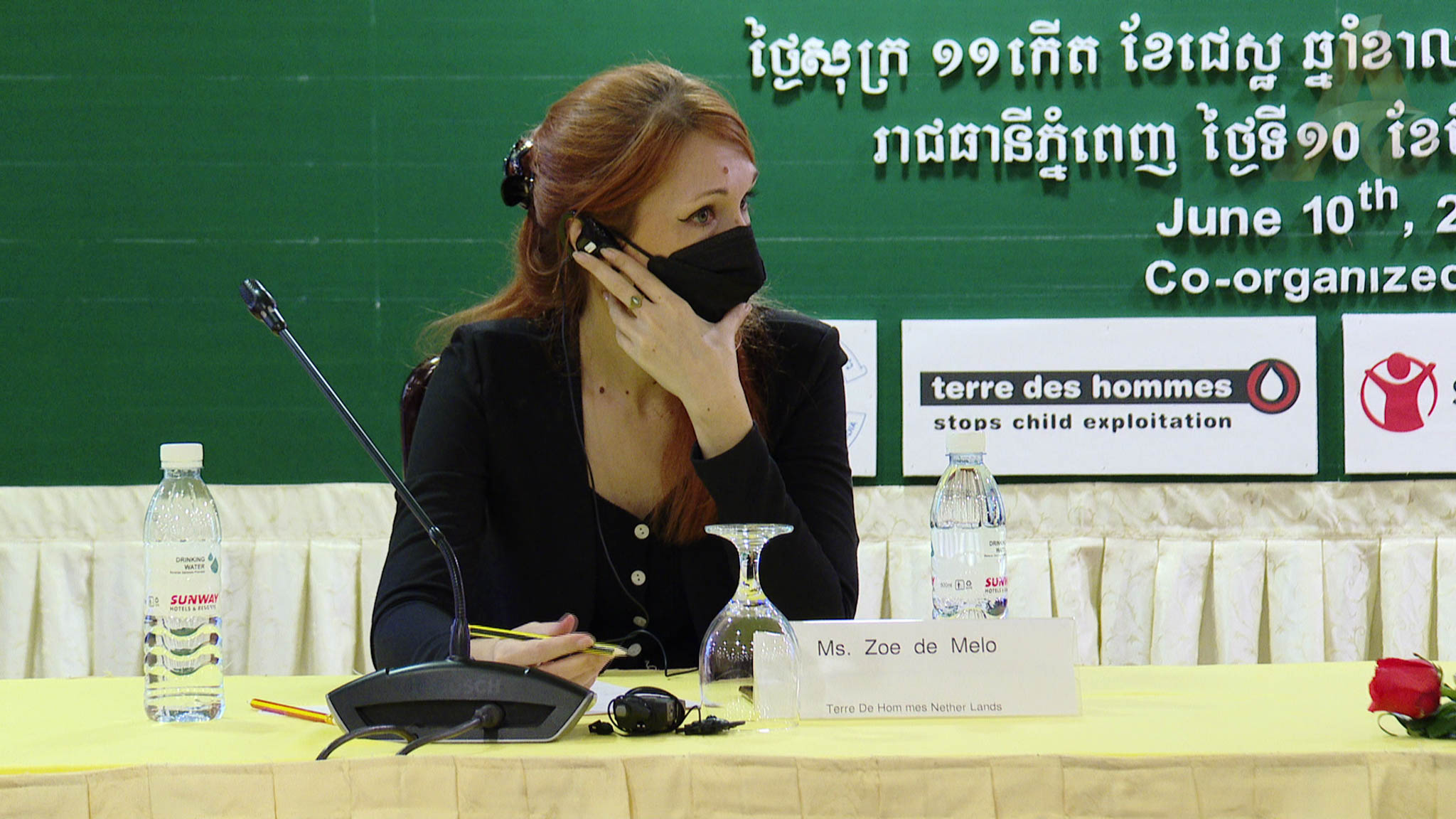
Online grooming has become increasingly difficult to combat due to the lack of laws on cybercrime against child sexual abuse materials, as previously mentioned. What is surprising as well is that child sexual extortion, or ‘sextortion’ also can occur between children themselves. Many tech giants have not set up a failsafe against child exploitation. For example, on a messaging app like Telegram, children can easily be added to groups against their will, or people can send unsolicited links to child exploitation sites in groups, like was the case during the Covid-19 lockdown in Cambodia in 2021.
Nick Rose, the Manager of Internet Crime Against Children at the Child Protection Unit, worked closely with Zoe de Melo’s team. He said that he has also been in contact with an officer of the US Department of Homeland Security to get access to data from the National Center for Missing and Exploited Children (NCMEC) of Cambodia. According to preliminary data, there has been a significant increase in online child exploitation reports since 2020. Although 90% of reports were non-malicious, there were still over 60,000 reports that required further investigation.
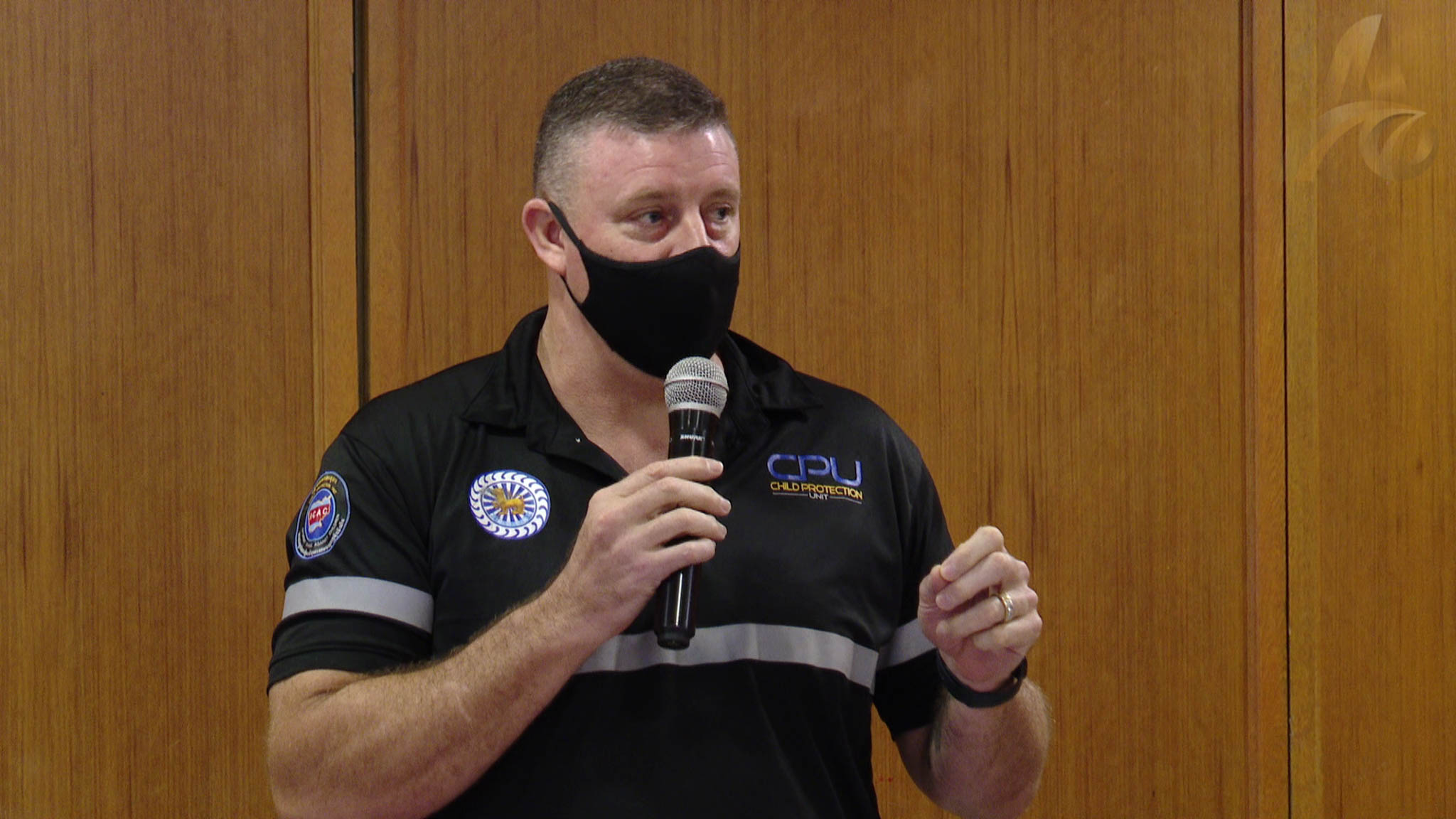
Mathieu Andre, the Technical Lead on Social Accountability and Advocacy at WVI Cambodia, presented on Local Child Protection System Strengthening. He said the accountability gap between the law and implementation is still large, so WVI suggests a rights-based approach vs. a capacity-based approach, on improving overall knowledge, creating a joint vision, and increasing accountability of all actors at the local level on child protection.
Dechorith Chen, the Program Director of Phnom Penh Program at Friends International, said that they have recruited 2,573 ChildSafe Agents to look out, report, and respond to cases, as well as provide emergency support, distribute meals and homework during the height of the Covid-19 pandemic. ChildSafe Agents are required to check in every three months to monitor the situation, offer suggestions, address concerns, and provide referrals to NGO support services to serve families and children well. Chen added that anyone who wishes to protect children can apply to be a ChildSafe Agent, such as TukTuk drivers, street sellers, or guest house workers.
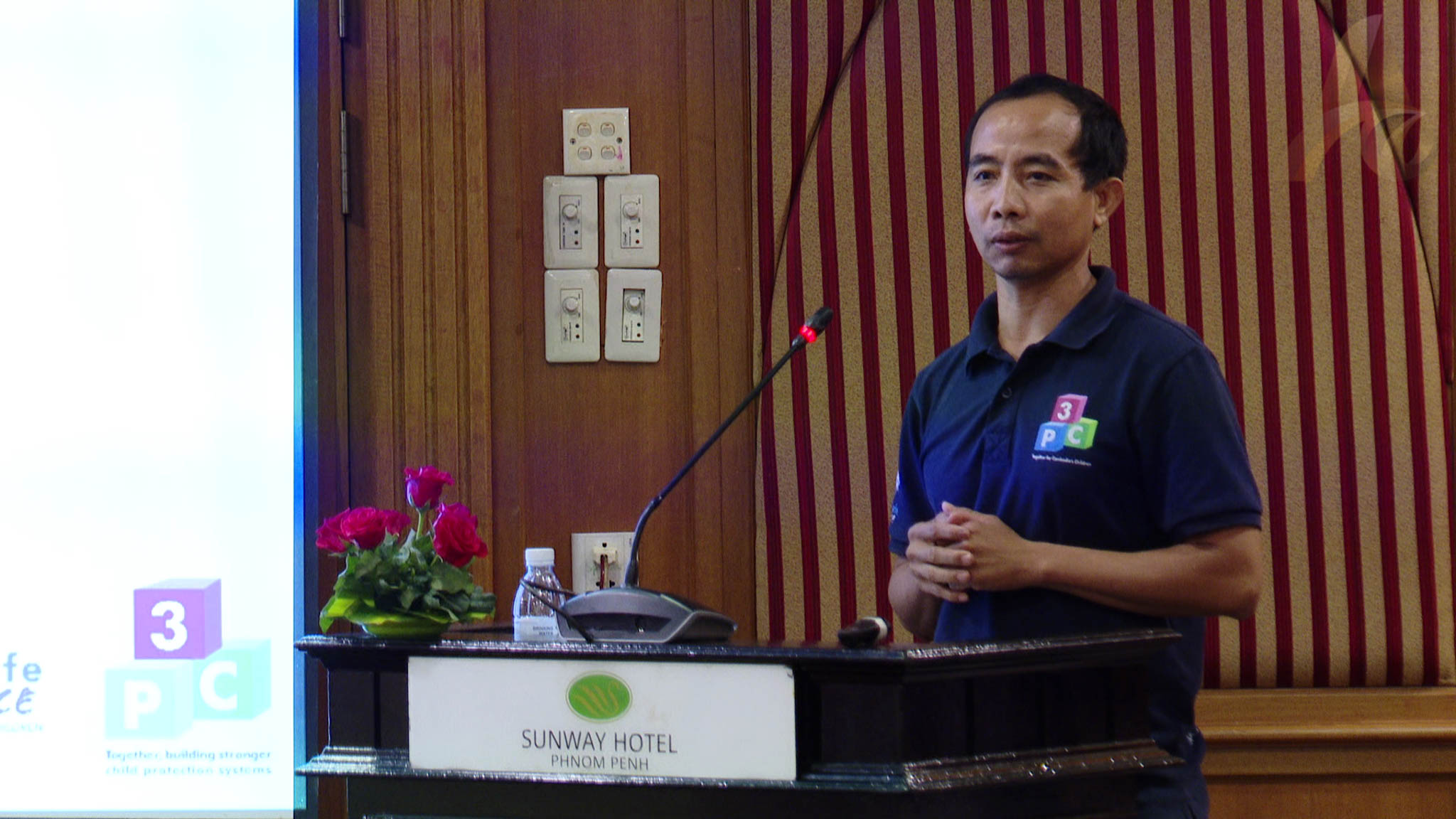
If you see a child at risk, please contact +855 12 311 112.
